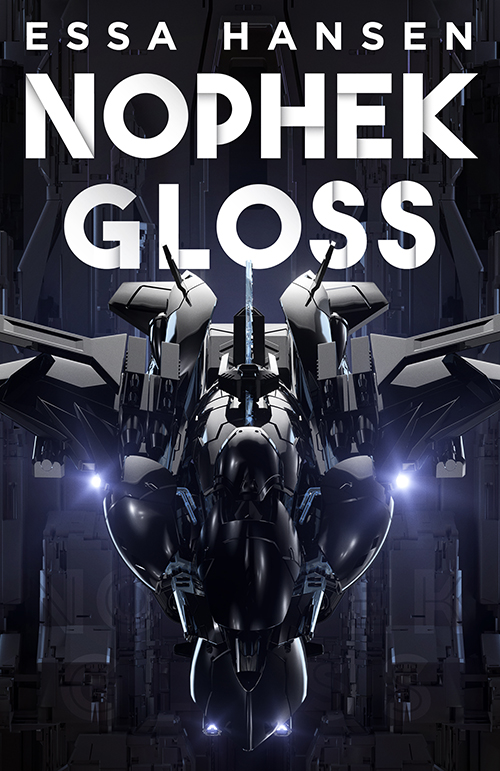
Genres: Queer Protagonists, Sci Fi
Representation: Asexual MC, genderfluid secondary character
Goodreads

In this dark, dangerous, roller coaster of a debut, a young man sets out on a single-minded quest for revenge across a breathtaking multiverse filled with aliens, mind-bending tech, and ships beyond his wildest imagining. Essa Hanson’s is a bold new voice for the next generation of science fiction readers.
Caiden's planet is destroyed. His family gone. And, his only hope for survival is a crew of misfit aliens and a mysterious ship that seems to have a soul and a universe of its own. Together they will show him that the universe is much bigger, much more advanced, and much more mysterious than Caiden had ever imagined. But the universe hides dangers as well, and soon Caiden has his own plans. He vows to do anything it takes to get revenge on the slavers who murdered his people and took away his home. To destroy their regime, he must infiltrate and dismantle them from the inside, or die trying.
Finalist for r/Fantasy Stabby Awards for Best Debut!
Highlights
~freckles = superpowers
~the ‘laws’ of physics are more like guidelines, really
~what if you could fly around in your own personal universe
~you can’t blame an animal for being an animal
~alien cuisine is very weird and very delicious
Neophek Gloss is, at its heart, an ode to Science Fiction. What comes through more strongly and clearly than anything else is Hansen’s sheer love of the genre; there’s a joy to the unbridled imagination that’s been let loose in this book, a joyfulness and a beauty. It’s as if Hansen has spent a long time waiting for a story that grabs hold of all the possibilities open to the genre and runs with them – and eventually decided to write it herself.
Caiden grows up completely ignorant of the multiverse he exists in: all he knows is the enclave where he and everyone he’s ever met work various jobs all geared around taking care of cattle. He doesn’t know about other planets. He doesn’t know about other universes. He doesn’t even know about the sky.
Until one day, the Overseers come and take everyone away to be slaughtered.
He plodded on, not worried about the beasts. They had eaten his whole world: they had to be full.
Caiden survives the bloodbath due to his mother’s quick thinking and sacrifice; he makes it through the subsequent arrival of thousands of aliens and their ships by finding a ship of his own – buried and abandoned, but magically, still functional. Even more magical is its ability to generate its own tiny universe – a universe where not all of the laws of physics Caiden knows apply, and where others are drastically changed. But the ship can’t fly itself, and it’s only due to a rag-tag crew of strangers – whose own ship has been downed for good – that Caiden is whisked away to (relative) safety. They’re the ones who give him a crash-course in the basics of interstellar reality: there are thousands of universes, not just one, each of which has their own unique take on physics and biology; and while each universe also has its own kind of people, there are groups whose work or domain stretches over multiple universes. The main powerhouses are the Cartographers, who gather and trade in knowledge from all sources, and who more-or-less regulate the lawless explorers known as Passagers; the Dynast, rulers of the first and central universe, officially a non-violent group who study ancient technology and wield enormous influence; and the Casthen, a corporation so huge and with their fingers in so many pies that they make Disney look like clumsy toddlers playing at capitalism.
It’s the Casthen who owned the world Caiden was born on; the Casthen whose brand Caiden has on the back of his neck; and the Casthen who fed his parents, sister, and everyone he’s ever known to monsters.
Caiden is a fourteen year old with virtually no knowledge of how anything works, and he’s dropped into the middle of a breaking news story: the Casthen’s operations on Caiden’s homeworld were completely illegal, but they have enough political weight that they’re likely to get away with it.
Caiden decides he can’t let that happen.
“I’m not the boy who ran away. I’m the man who’s coming to avenge.”
I can understand why the official description of Nophek Gloss is so short and sparse on details, because once you start trying to explain this story, you realise how much context a person needs to be able to appreciate it. And there’s no getting around the fact that most of this information isn’t conveyed very elegantly to the reader; there is a lot of info-dumping, and while I could forgive that in the beginning of the book – Caiden does need those info-dumps just as much as the reader does – it’s something that continues throughout, and we’re not talking about smooth, well-done info-dumping, either. It starts clunky and continues that way. The other big weakness of this book is the dialogue; although all of the characters feel very distinct, almost every character, almost all of the time, sounds robotic and quite lecture-y when they talk – or else like the most cliched of cliche villains, in the case of a few of the bad guys.
So no, I’m not going to try and sell you on the idea that Nophek Gloss is perfect. It’s not. But I still think it’s a really incredible book, one that has fun with the things that it does, the concepts and species and worlds Hansen has created. It’s so wildly imaginative that I really couldn’t care less if the dialogue made me wince occasionally; I’m here for working astrology and aliens that aren’t made of meat and shapeshifting spaceships! For fluffy painkillers and mouth-watering galactic food and coats that alter in texture and style according to your mood! For white freckles and aging six years in an hour and ancient alien ruins made of materials that only exist under special conditions! Hansen doesn’t play it safe or ask whether something is sensible; she took the idea of a multiverse and legged it, making each universe unique and strange and special, and then she populated them with everything she could dream up, and why the hell not? A multiverse means literally anything could exist, right? Finally, a Sci Fi writer who realised that and just went for it!
And what an amazing cast of secondary characters! The group who rescues Caiden are a hard-won found-family, a fabulous and diverse unit, and I didn’t blame Caiden one bit for wanting them to adopt him – I’d want to be a part of what they have too. Laythan, Kisne, En, Panca, and Taitn fit together wonderfully, and I was impressed at how well each of them stood out from the rest, and had their own responses to discovering a fourteen-year-old in the midst of a massacre. They’re also our first glimpse at the enormous diversity of species Hansen has created; Kisne has skin that changes colors and patterns to reflect his emotions; Panca has a kind of jewel embedded in or grown out of her forehead. Not long after meeting them, Caiden sees thousands more not-humans, and if most of them are humanoid, well, Hansen’s worldbuilding justifies it – every new universe has split off from the central, first one, and since that first one was populated by humanoids…you get thousands of different kinds of humanoids, each a little or a lot different from the next.
Hansen has put just as much thought into her sci fi technology; Caiden is fourteen when the book opens, but trades his memories of what happened to his home for his physical and mental development to be sped up by six years, making him twenty for most of the novel. He also gets a lifetime’s worth of knowledge sort of downloaded into his brain and body, and I loved how drastic the difference was between the Caiden encountering the capital city of the multiverse for the first time, and the aged-up Caiden who could understand what he was seeing;
With new languages, he could read the colorful light-script, no longer the signs of foreign terrors but hawking mundane things like respiratory implants, motile tattoos, and exotic cuisine.
As someone who has, many times, been in countries where I can’t speak or read or understand anything around me, Caiden’s relief and excitement once everything makes sense read as both completely legit and genuinely wonderful. I have to admit to being hugely wistful for the idea of tech that can just give you knowledge, though!
Wonder started to unstitch his anxiety.
From a writing perspective, I thought the choice to start with Caiden as a child and then age him up was interesting; because humans are weird, we get more upset when things happen to kids than to adults (I would argue that age is irrelevant and we should be equally upset no matter how old the victim is, but that’s a rant for another time!), so it makes sense to have the massacre happen to child!Caiden if what you’re going for is that emotional gut-punch. But fourteen-year-old Caiden wouldn’t be able to carry a book, so aging him up – and giving him maturity and knowledge in the process – lets you have the whole revenge arc, which I don’t think would be as easy to pull off with a younger character as it is with a twenty-year-old.
That being said, I really didn’t enjoy the revenge arc. Initially I was really excited, because Hansen first makes it clear that even if it were possible to destroy the Casthen, that wouldn’t necessarily be a good thing;
“What would happen if the Casthen were destroyed?”
After a moment of processing, its words re-formed: One million species expired.
He blinked at the letters. “How?”
Countless aspects unfolded, showing how the Casthen’s influence or ownership would deteriorate industries. “Machine spirit” cloning operations would cease without the Casthen’s proprietary germination techniques. The lack of new spirits would result in existing ones being forcefully desenescized–aged backward–to prolong their life span: beings wrung out and re-sopped like rags.
Five thousand other species would lose the ecological factors that sustained them. The cessation of predator harvest in five universes would threaten another twenty thousand species, each of which provided critical exports. Ecological links all over cascaded into catastrophe the moment a few key species were lost. Then a 3 percent drop in fuel-prism production would limit access to worlds in need of aid.
I WAS SO EXCITED WHEN I READ THIS! Finally, a take-down-the-bad-guys story that acknowledges that it is just not that simple; it’s not black and white, it’s extremely messy grey! Nor is it a head-of-the-snake situation; killing the CEO doesn’t dismantle the corporation, because in reality it just doesn’t work like that. I was on the edge of my seat waiting to see what Caiden would do, what kind of approach he would take towards the Casthen, or if he might turn away from revenge (as Laythan and the others urged) entirely, and build a new life for himself.
…So I was massively disappointed when the entire second half of the book became all about killing Cydanza, the Casthen Prime, aka the CEO. It was confusing; it’s already been established that the Casthen is an immensely complex machine, and that removing Cydanza is unlikely to change anything, but nonetheless Caiden buys into the spiel of a smaller villain and agrees to dedicate himself to taking out Cydanza. I’m not sure if we’re supposed to infer that it’s Caiden’s trauma (of which he has a lot) that makes him so easily led and so easily convinced – if he believes it because he wants to believe it – or if Hansen started out trying to show how complex this kind of situation is and then let the plot devolve into cliche. Either way, this would have been an easy four stars without that sudden 180.
The obvious knock-on effect is that the second half of the book is then pretty damn dark; Cydanza is unremittingly Evil with a capital E, and Caiden and his sort-of-ally have to do some pretty terrible things in order to get close to her. Laythan and the rest of Caiden’s maybe-found-family aren’t present, because Caiden runs away from them – you can’t really call it a metaphor for turning away from love and family in favor of revenge and bloodshed, since that is literally what he does. It didn’t really make me like Caiden very much, but it’s impossible not to understand why he makes those choices; he never stops feeling like a real human person, complete with human weaknesses, blindspots, and the capacity for making mistakes.
He grows, though. It’s much more than the six years he used in the aging chamber; the Caiden at the end of the book isn’t the same person as the one who started it – and that’s how it should be. Between the character growth, and the absolutely dazzling imagination on display, and Hansen’s prose? It’s a book I adored the first time I read it, and I still enjoyed it the second time around. I want to read book two, not so much to follow Caiden, maybe – although the ending of Gloss gives you an immense amount of incentive for staying invested in his story! – as to see more of the world(s) that Hansen has created. Yes, it has flaws, but I’d still recommend it, especially to anyone who’s feeling like their usual sci fi fare is a little stale.
And you’ve still got time to read Nophek Gloss before the sequel is out next month!

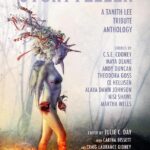

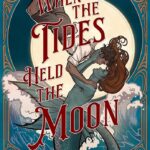
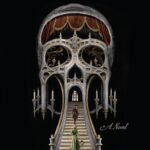
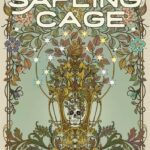
I need to hurry up and read this book!
Definitely! The sequel is out on the 1st of February!!!